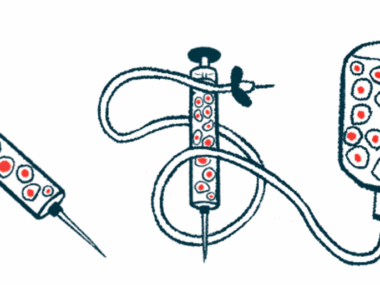MTX325 moving into clinical testing in the coming months
Oral Parkinson's candidate treatment study to enroll 160 people in UK
Written by |

The U.K. Medicines and Healthcare products Regulatory Agency (MHRA) has given Mission Therapeutics clearance to launch a Phase 1 clinical trial testing MTX325, its experimental oral therapy for Parkinson’s disease.
“The MHRA’s authorisation marks a major step forward in our mission to develop MTX325 as a disease-modifying therapy for Parkinson’s Disease,” Anker Lundemose, MD, PhD, CEO of Mission, said in a company press release.
The study, which will be the first time MTX325 will be tested in people, is expected to enroll about 160 adults both with and without Parkinson’s at sites in the U.K. The trial is expected to start enrolling patients in the next few months, and Mission expects early data will be available sometime next year.
“This Phase 1 trial is intended to confirm the safety and tolerability of MTX325, in both healthy volunteers and patients with Parkinson’s Disease, and help us determine appropriate doses for future efficacy testing,” said Suhail Nurbhai, Mission’s chief medical officer. “We look forward to starting the trial in the coming months, and providing preliminary first-in-human data later in 2024.”
Therapy designed to enhance mitophagy
Parkinson’s is caused by the death and dysfunction of dopaminergic neurons, specialized nerve cells in the brain that are responsible for making a signaling molecule called dopamine. Reduced dopamine signaling in the brain ultimately gives rise to most disease symptoms.
Although the mechanisms that drive dopaminergic neuron death in Parkinson’s aren’t fully understood, one process thought to play a key role is dysfunction of the cell’s mitochondrial. Mitochondria are called the powerhouses of the cell, key for providing cells with energy. This is especially important in nerve cells that need a lot of energy for the busy work of sending electrical signals.
MTX325 is an oral therapy designed to enhance mitophagy — the molecular process that cells use to get rid of mitochondria that have become damaged and recycle them into new, functional mitochondria. The therapy specifically works by blocking the activity of USP30, a protein that normally prevents mitophagy.
“Mitophagy is the natural ‘quality control system’ cells use to clear out dysfunctional mitochondria, and we believe that increasing the removal of these dysfunctional mitochondria will improve the health of dopaminergic neurons and thereby slow the progression of [Parkinson’s],” said Paul Thompson, PhD, Mission’s chief scientific officer.
Data from studies done in mice, announced by Mission last month, have indicated MTX325 can help prevent brain cell death in Parkinson’s.
“There are currently no approved treatments for Parkinson’s Disease which modify the underlying pathology of this common and devastating degenerative condition. By enhancing mitophagy, MTX325 is designed to address the loss of dopamine-producing neurons resulting from the build-up of dysfunctional mitochondria in these brain cells,” Thompson said.
“Having recently published data showing that MTX325 produced a similar beneficial effect to knockout of USP30 in a mouse model of [Parkinson’s], bringing MTX325 into the clinic — with its potential to preserve vital dopamine-producing neurons in the brain — demonstrates our commitment to pushing the boundaries of research in diseases with limited treatment options,” Lundemose said.



